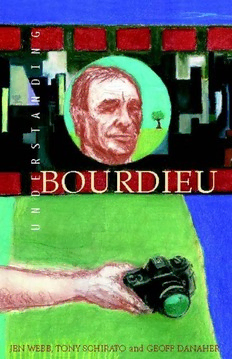
Understanding Bourdieu PDF
227 Pages·2002·0.929 MB·English
Most books are stored in the elastic cloud where traffic is expensive. For this reason, we have a limit on daily download.
Preview Understanding Bourdieu
Description:
Pierre Bourdieu's work on the sociology of culture and language, on practical reason, on education, on citizenship and the cultures of poverty, and on a range of other topics is now coming to be seen as one of the 20th century's most important contributions to our thinking about the world. This is a comprehensive and lucid introduction to his work. Bourdieu has left his mark on most of the "big" theoretical issues in the world of contemporary theory - gender, subjectivity, the body, culture, citizenship, and globalisation - and his terms are now commonplace: "social capital", "cultural capital", "field", and "habitus". Bourdieu examines how people conduct their lives in relation to one another and to major social institutions. He argues that culture and education aren't simply minor influences, but as important as economics in determining differences between groups of people. Unlike the other grand systematisers Marx and Foucault, Bourdieu has tested these arguments in detailed fieldwork. His range is eclectic, his vision is vast, and his writing is often dense and challenging. This text aims to make his work accessible for those tackling him for the first time.
See more
The list of books you might like
Most books are stored in the elastic cloud where traffic is expensive. For this reason, we have a limit on daily download.
